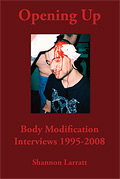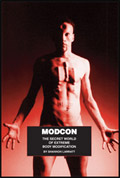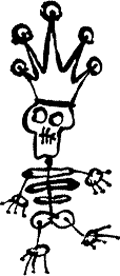I’ve always had an interest in the relationship between the conscious mind and the remainder of the subconsciou mind and body. Nowhere is this more obvious than in the conscious control of autonomic systems, and because of my apnea problems, this has been on my mind a great deal. I have never lost the ability to consciously control my breathing but I do at times lose the ability to control it autonomicly. Anyway, when I was a kid, at about age twelve, I discovered I was able to hold my breath for five minutes or more without any training beyond doing it to pass the time on the long school bus rides that I had as a kid in the country. I don’t feel like it was a particularly unique ability, even though I suspect breath-holds of over five minutes for a modern industrialized child is extremely unusual now that I think about it.
Anyway, about five years ago (you may remember the first time I wrote about it on this blog in 2007), I discovered that I can, at least for short periods of maybe five seconds, completely stop my heartbeat. I do it simply by extreme relaxation and have no training in any related yogic or meditation practices. I don’t have any reason to believe that this is a special ability although I suppose it is possible that it’s related to the genetic damage to my autonomic nervous system. But I don’t think so. After I discovered I was able to do this I started researching it, and I came across a similar individual written up by a Dr. C. M. McClure in the June 1959 California Medicine in an article titled “Cardiac Arrest Through Volition“. Here’s a relevant quote from it, and a picture of the guy’s EKG (the top shows his heart stoppage, the bottom is his normal reading).
A 44-year-old aircraft mechanic of Danish descent was admitted to Lindsay Municipal Hospital, April 24, 1958, because of a cold with cough of two weeks’ duration. He said that in the previous 20 years he had had six episodes of upper respiratory tract infection, and that during these periods he had found that by sitting quietly, relaxing completely and “allowing everything to stop,” he could induce progressive slowing of the pulse until cessation of heart action would occur, then a feeling of impending loss of consciousness. After a few seconds of this sensation, he would take a deep breath and normal heart action would resume. These occurrences resulted in the patient’s developing a fear of sleeping, lest his heart stop and not start again. In 1953 and several times afterward the author verified this story by auscultating the heart and palpating the radial pulse while the patient induced several seconds of cardiac arrest. At these times his color would become the ashen grey of sudden circulatory failure, and partial loss of consciousness would ensue. However, no cardiac irregularities were ever observed during either normal sleep or general anesthesia. Cardiac arrest occurred only when the patient deliberately induced it.
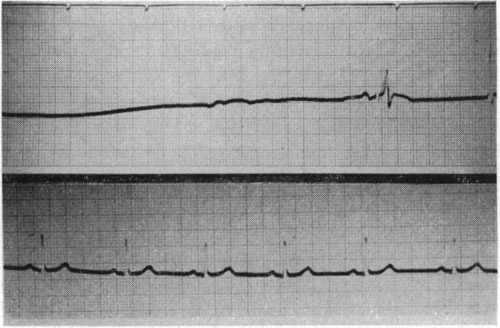
This is my experience exactly. I also spent a while extremely paranoid that I was going to accidentally stop my heart and not have it start again (I think I even hinted at this when I first wrote about it). Reading about this case was very reassuring, both to show me I probably didn’t need to worry, and to give me a little evidence that I hadn’t imagined the whole thing. I suspect there are many people reading this who don’t believe me, and that does bug me a bit more than it probably should. Maybe someone reading this will describe a similar experience and it will turn out that it’s actually not that uncommon.
One of the reasons it’s on my mind is that in two weeks I have an appointment for a detailed and lengthy EEG/EKG related to the possible brain damage occurring due to my genetic abnormality. I’ve been giving serious thought to stopping my heart while I’m being monitored. I figure that means that I’ll have hard proof that no one can deny, and also that since I’ll be in a hospital, if anything goes wrong, it should be possible to revive me. That said, I’m not convinced it’s advisable both because it’s hard to convince myself that it’s fundamentally a good idea to be stopping ones own heart, and because I don’t know how my doctors will respond, even with this blog entry sitting as proof that it’s premeditated and not a “real” cardiac arrest. But yeah, if I do it, I will send them to this blog I suppose.
I have tried to find other research on voluntary control of the heart, and to be honest, I haven’t found as much as I’d like. Of course almost everyone can speed up or slow down their heart just by thinking about it, but stopping — or “pausing” — it is a different matter. And of course I’m not talking about the trick that magicians do where they squeeze the right muscles to control blood flow and make it seem to people that their pulse has stopped where it’s being measured — here’s a YouTube video explaining how to fake stopping your heart but of course that won’t fool an EKG since you’re not actually stopping your heart. I found quite a few articles and studies on Indian Yogis stopping their hearts but the stories are so remarkable — claims of stopping the heart for as long as five days, under “Western scientific observation” — that I have a great deal of trouble believing the majority are anything other than illusion. I paid $11.95 to read a 1973 article in Psychological Bulletin by Edward Blanchard and Larry Young called “Self-control of cardiac functioning” that referred to some hilarious studies in which they trained people to slow down their heart rates slightly (by at most 10%) by giving them electric shocks as punishment for not doing so!!! I’m impressed their heart rates didn’t skyrocket from the stress! But for my specific interest, all this paper did was cite McClure and mention a yogi that was able to drop his heartrate in half using a similar relaxation technique, so it was a wasted purchase overall.
I did find one last thing worth reading, a 1961 article by Wenger, Bagchi, and Anand in Circulation: Journal of the AHA titled “Experiments in India on “Voluntary” Control of the Heart and Pulse” that seemed more legitimate than most of the claims coming out of India at the time, using an 8-channel EKG to investigate yogic claims of the ability to stop the heart. That paper is free to view, and worth a read. I got the impression that most of the yogis were not using a relaxation method (vagal innervation) to “stop” the heart — the studies instead seemed to suggest that they were doing muscle tricks to mask the heart rate, analogous to the YouTube trick linked previously. This is impressive of course, but it’s quite different from what I am interested in. They also discuss a little about the yogi’s restrictions as to what the scientists could measure and what they couldn’t that strongly imply that there’s more illusion than anything medically unusual going on. Generally they could hide the pulse in the wrist, but not in the finger, let alone in the heart itself — big deal — which puts it in the rather obvious “trickery” category. Near the end of the article they discuss a yogi who claimed only to be able to slow his heart, and he’s the only one who I think is using the same method as McClure described, and there is even a 3-second period of disruption:
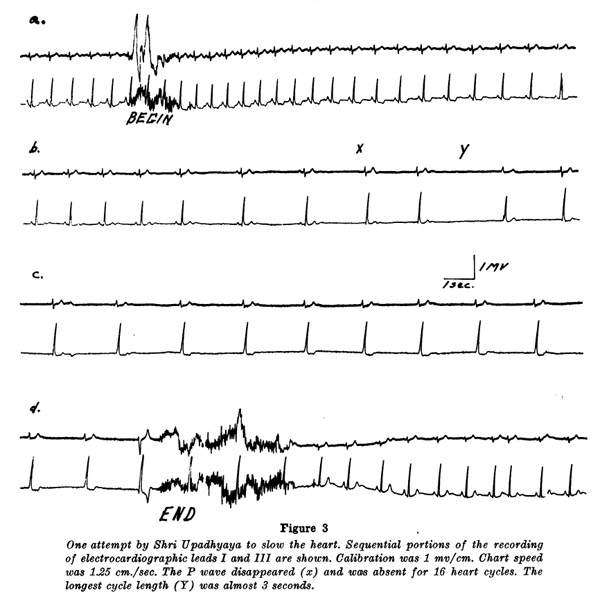
(I feel like my EKG would look more like the one McClure cites).
Anyway, it’s all quite fascinating to me. There is so little good information on the subject, and an unfortunate amount of deception on the part of yogis. Not that I’m surprised that Eastern mysticism fooled a bunch of Western doctors (it still happens all the time with homeopathy, acupuncture, reiki, and so on), but it’s extremely annoying. Maybe I will add some hard facts to the research when they hook me up to the machines. Or maybe I will chicken out. We shall see!!!







